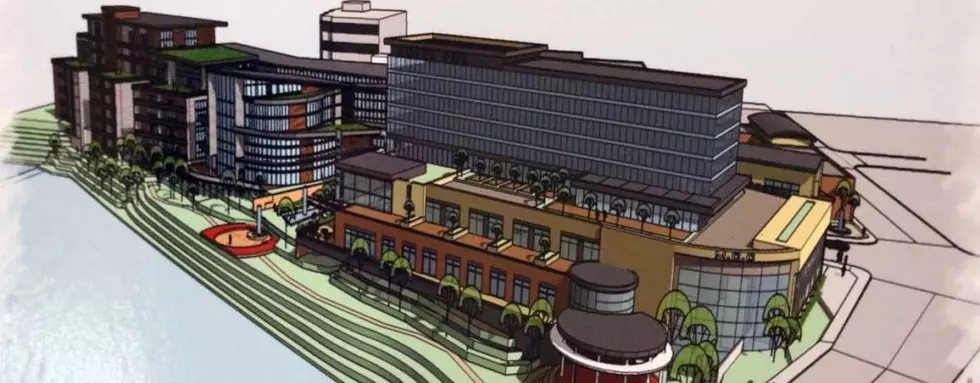
Community group wants labor agreements included in private hotel project
By Martin Kidston/Missoula Current
A group of community activists is pushing the city and a team of developers looking to launch a multi-million-dollar downtown redevelopment project to include a union agreement in the overarching contract.
The request, brought by several members of the Community Benefits Coalition, set off a lengthy and often tense debate between Hotel Fox Partners, the activists and the Missoula Redevelopment Agency's Board of Directors.
During the meeting, activists suggested that without a labor agreement, a strike, boycott or picket could be used to scuttle the project – a move that could place the success of a future hotel and conference center in financial jeopardy.
Janet Fiero, a member of the Community Benefits Coalition, said the group has been working in good faith with Hotel Fox Partners throughout the project's four-year planning process. The developers have agreed to the group's long list of demands on all counts but one, she said.
“Missing from our list of accomplishments is how the project will put us on a path forward creating well-paying jobs and avoiding labor problems, such as boycotts and strikes,” Fiero said. “As public decisions makers, we want you to avoid the risks of any negative financial impacts that might come about due to future boycotts, strikes or picketing.”
While the hotel hasn't been built and remains in design, members of the coalition believe that because a portion of public money is being used to create a parking facility and a conference center on the site, that the city has the right to extract certain concessions from the developers.
The suggestion didn't sit well with members of Hotel Fox Partners, who have spent four years and millions of dollars planning the project, and purchasing the property needed to bring the project to fruition.
“When I go back to 2011 when we answered the request for proposals issued by the city, this wasn't part of what (MRA) and the City Council put in there, saying we'd need to negotiate,” said Jim McLeod, a member of the development team. “We've been very clear from day one that we're not going to sign that agreement, and we still feel that way.”
Dieter Huckestein, whose has spent four decades managing and spearheading the construction of hotels and conference centers around the country, said the activists' demands could jeopardize the project.
Requiring the developers to sign a labor agreement would also rob future employees of their right to make their own decision. Not all employees want to unionize, he said.
“The way this usually works on projects like this – we build the hotel, we open the hotel, we hire the employees, we take care of the employees,” said Huckestein. “The union has a right to come in and try to convince the employees to unionize. The employees have a right to say what they'd like to do. You're taking a choice away from the employees.”
The activists' demand also prompted debate between MRA staff and the board.
MRA Director Ellen Buchanan said the agency has, for nearly 40 years, helped fund private projects with public money to create jobs, expand the tax base and incentivize community investment. None of those agreements have ever required a private developer to sign a labor agreement.
“I'm having a hard time understanding what makes this (hotel and conference center) project any different than the $12 million we've invested in the Old Sawmill District,” said Buchanan, referencing the city's other major redevelopment project. “I don't know how the city can tell a privately funded and operated hotel that they have to enter into a neutrality agreement, just because we want more conference space than the private sector would ever build on its own.”
Board Chairman Karl Englund disagreed.
“The city has the right, as a purchaser, to condition the purchase of the property on conditions that aren't illegal,” he said. “It's different than building a road or a street and seeing what goes next to it.”
The board on Thursday ultimately approved the terms of the development agreement, though board member Danial Kemmis said the issue raised a larger question, one that went to the ongoing social debate over the inequity of wealth and what to do about it.
“I believe those who have some authority over public funding must be aware of that, and do whatever we might be in a position to do to begin to address that very, very serious issue,” said Kemmis. “What we might be able to do in this case is no doubt marginal, but I hope the margin is left flexible as we move to later instances.”
Ward 5 City Council member Julie Armstrong, who sat in on the meeting, said the issue could be answered as the development project moves forward.
“Because there are city dollars being used, you still get the chance later through our procurement and purchasing policies, and local preference policies, to look at the vendors being used to construct and manage the conference center,” she said. “We'd have a chance to look at some of these things at a later date.”
Contact reporter Martin Kidston at info@missoulacurrent.com
